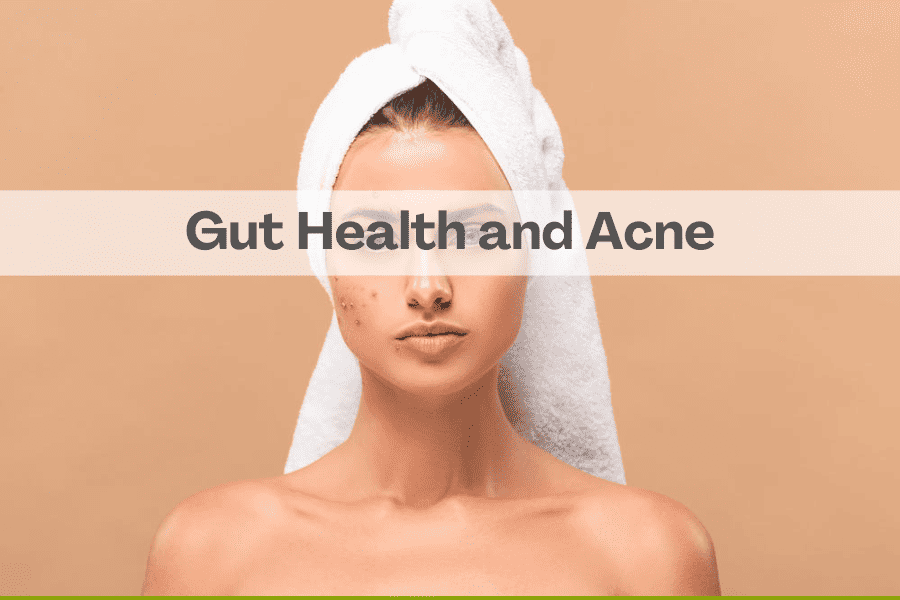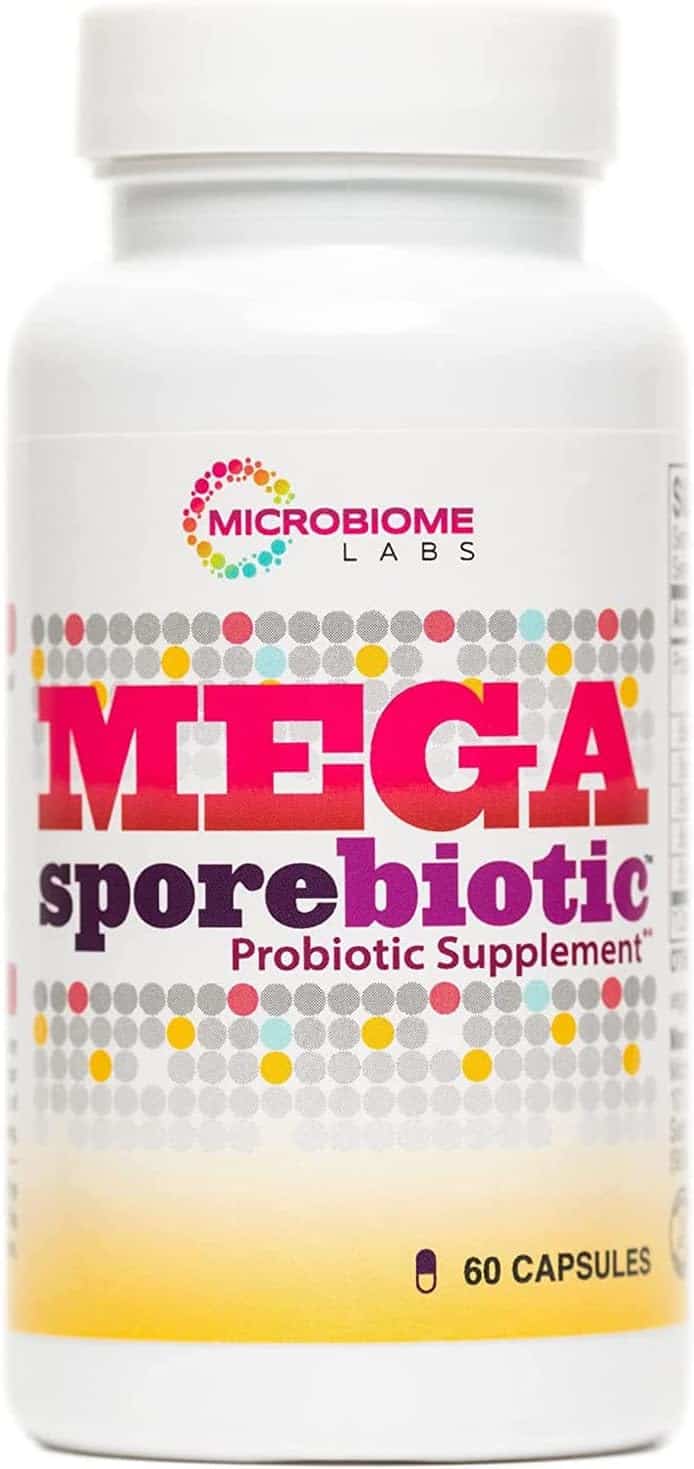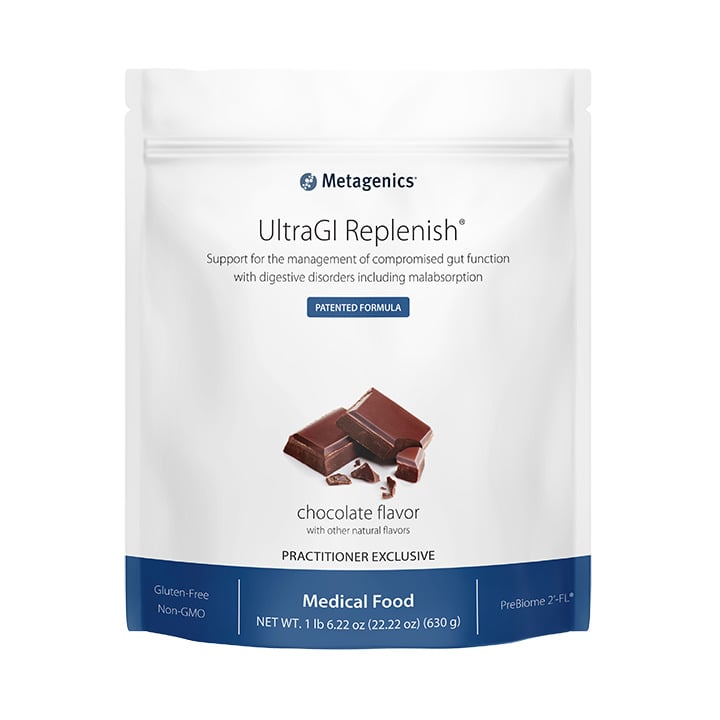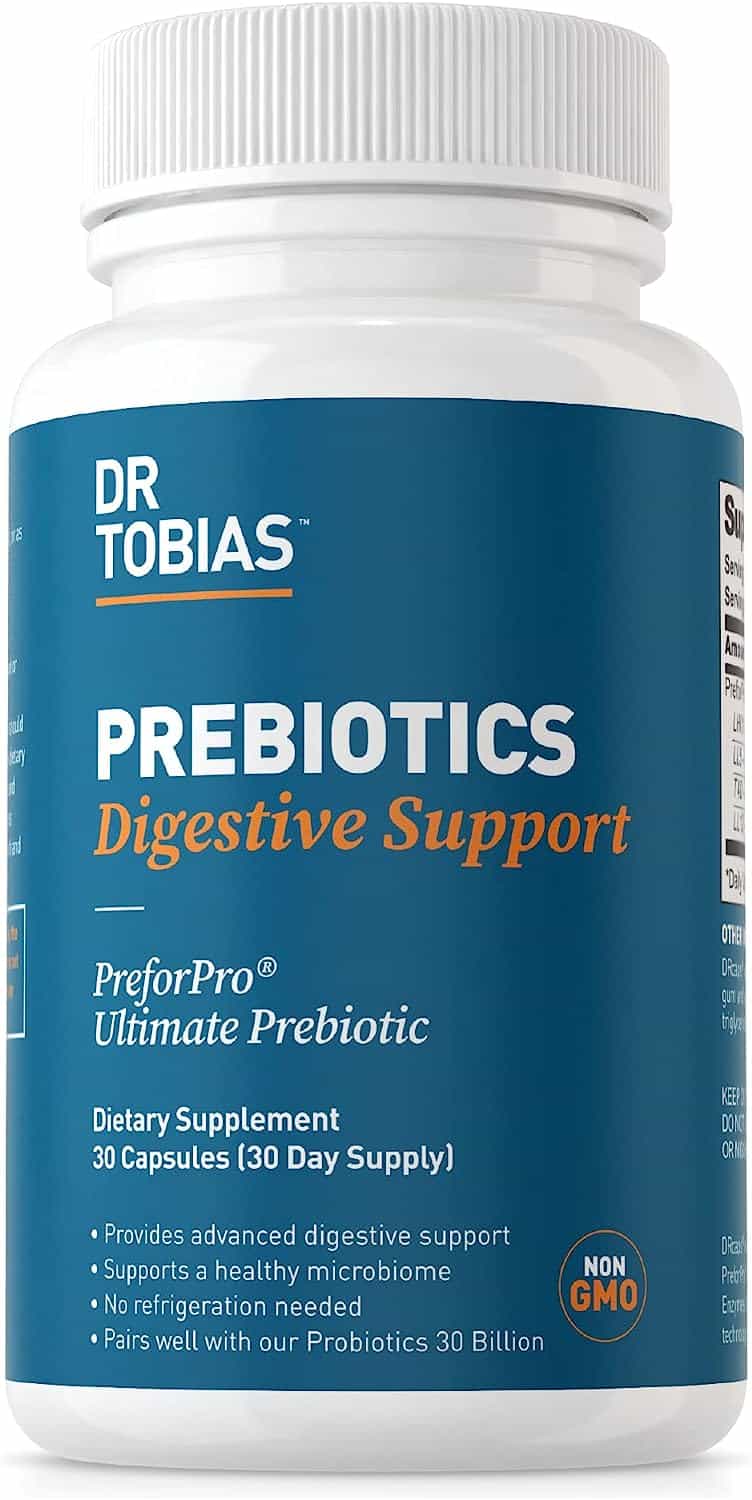The gut health and acne relationship is no joke. Have you ever wondered why some people struggle with acne despite being diligent with their skincare routine? The answer could very well lie in an often overlooked aspect of our health: gut health.

Our gut health plays a crucial role in our overall well-being, and recent research has shown a strong connection between the health of our gastrointestinal tract and the health of our skin.
In this blog post, we will explore the gut-skin axis and how understanding this connection can help you achieve clearer, healthier skin.
Get ready to dive deep into the fascinating world of gut health and acne prevention!
This blog post is all about "Gut Health and Acne".
Please note that we are not medical professionals and this post contains general information that should not replace the advice of your doctor or nurse.


Short Summary
- Gut health and acne are connected, understanding the connection can help improve skin health.
- Poor gut health can cause systemic inflammation, leaky gut syndrome, and unexpected signs like sugar cravings & food intolerances.
- Eating clean, taking prebiotics + probiotics, managing stress levels, & getting enough sleep will all help to clear up your acne!
The Gut-Skin Axis: Understanding the Connection
The gut-skin axis is the relationship between the health of our gastrointestinal tract and the health of our skin.
Did you ever notice that when you start eating a lot of sugar, you start to get those unwanted pimples and blemishes? It's certainly NOT a coincidence.
Our gut is home to trillions of microorganisms, collectively known as the gut microbiome, which play a vital role in our overall health. These microorganisms help us digest food, produce essential vitamins and neurotransmitters, and even influence our immune system.
When our gut health is compromised, it can lead to an imbalance in the gut microbiome, known as gut dysbiosis. This imbalance can result in systemic inflammation and leaky gut syndrome, both of which have been linked to inflammatory skin conditions, including acne.
In the sections that follow, we will delve deeper into the specific ways that gut health affects acne vulgaris, and some of the unexpected signs of poor gut health.
We will also discuss:
- Strategies for improving gut health and clearing acne
- The role of the immune system in the gut-skin connection
- The benefits of a healthy gut for overall skin health
How Gut Microbiome Affects Acne Vulgaris
The gut microbiome, also known as gut flora, is a complex ecosystem of bacteria, viruses, and yeasts that inhabit our intestines. These microorganisms play a crucial role in maintaining the intestinal barrier, preventing harmful substances such as bacterial by-products, undigested proteins, and toxins from entering the bloodstream and potentially reaching the skin.
An imbalance in the gut microbiome, known as gut dysbiosis, can lead to systemic inflammation and leaky gut syndrome, both of which can contribute to the development of acne.
Systemic inflammation, caused by gut dysbiosis, can lead to:
- An increase in sebum production, which can clog pores and result in acne breakouts
- Disruption of the balance of by-products produced by gut microbes, leading to an overgrowth of harmful skin bacteria
- Inflammation and acne development
Leaky gut syndrome, another consequence of gut dysbiosis, allows harmful substances to enter the bloodstream, potentially triggering acne. To avoid leaky gut syndrome and its impact on acne, it is essential to maintain a healthy diet, manage stress levels, and consider taking probiotics to support a balanced gut microbiome.
In the next sections, we will explore the role of systemic inflammation and leaky gut syndrome in more detail, as well as how these relate to gut health and acne.
The Role of Systemic Inflammation
Systemic inflammation is a chronic state of inflammation in the body that can occur even when there is no outside danger. It is marked by the release of pro-inflammatory cytokines, which are inflammatory messengers that can affect the development of acne.
Systemic inflammation is linked to gut dysbiosis, an imbalance in the gut microbiome. This imbalance can lead to the overproduction of pro-inflammatory cytokines, resulting in systemic inflammation and potentially contributing to conditions such as inflammatory bowel disease.
Systemic inflammation can cause acne breakouts by:
- Increasing sebum production
- Clogging pores
- Leading to increased inflammation in the skin, exacerbating existing breakouts and potentially causing new ones.
Understanding the role of systemic inflammation in acne development can help guide effective treatment strategies that target the root cause of the problem. In the following section, we will discuss leaky gut syndrome, another factor influenced by gut health that contributes to acne development.
Leaky Gut Syndrome and Acne
Leaky gut syndrome is a condition where the intestinal barrier becomes compromised, allowing inflammatory compounds and bacteria from the gut to travel through the bloodstream. This influx of harmful substances can disrupt the natural balance of the skin microbiome and lead to acne development.
To avoid leaky gut syndrome and its impact on acne, it is essential to maintain a healthy diet, manage stress levels, and consider taking probiotics to support a balanced gut microbiome. By addressing the underlying cause of leaky gut syndrome, you can help prevent the development of acne and promote overall skin health.
5 WARNING Signs of Poor Gut Health
Recognizing the signs of poor gut health can help you address potential acne triggers and improve your skin’s appearance. Some unexpected signs of poor gut health include:
- Excessive sugar cravings
- Food intolerances
- Weight fluctuations
- Tiredness
- Skin issues
These signs can indicate underlying gut health issues that may contribute to the development of acne.
Understanding these signs and addressing the root cause of poor gut health can help improve your overall health and reduce acne breakouts. In the next few sections, we will delve deeper into each of these unexpected signs and discuss strategies for improving gut health and clearing acne.
1. Excessive Sugar Cravings
I know immediately that my gut health is "off " when I start to REALLY crave sugar. Generally speaking, it goes beyond just wanting a cookie or some chocolate. It's when I start craving sugar ALL THE TIME!
Did you ever notice that when you start eating more sugar than normal it has a bad effect on your skin? Well, it's certainly no coincidence.
These cravings can be caused by various factors, such as stress, hormonal imbalances, and nutrient deficiencies. Excessive sugar cravings can lead to health issues like weight gain, an increased risk of diabetes, and ACNE!
Some things I start to do when I get these cravings are to stop what I am doing and reassess. I make sure that I am doing the following KEY steps before doing anything else:
- Maintain a balanced diet
- Get enough sleep
- Manage stress
- Avoid processed foods
By addressing the root cause of sugar cravings, it can definitely help improve your gut health and reduce the risk of new pimples forming.
2. Food Intolerances
Next on the list, food intolerances, are another HUGE warning sign that things are off with your gut. Food intolerances are adverse reactions to certain foods that can lead to digestive issues like bloating, gas, abdominal pain, and diarrhea. They are different from food allergies, as they do not involve the immune system.
Sadly, there are SO many people who suffer from food intolerances today that most people don't even question that it might stem from gut issues.
Symptoms of food intolerances can also include headaches, fatigue, skin rashes, and joint pain.
Identifying and managing food intolerances can help improve gut health and reduce acne. Keeping a food diary and tracking your symptoms after eating certain foods can help you identify potential food intolerances. You can also try an elimination diet, where you remove certain foods from your diet and slowly reintroduce them to see if they cause a reaction.
3. Unintentional Weight Gain or Weight Loss
Unintentional weight gain or weight loss can ALSO be linked to poor gut health.
Studies show that certain kinds of gut bacteria can make it harder to lose weight, while other species of intestinal bacteria may cause malabsorption, reduce inflammation and prevent weight gain. An imbalanced gut can also impact nutrient absorption, fat storage, and metabolic regulation, which can result in changes to your weight.
By focusing on improving gut health and maintaining a balanced gut microbiome, you can support healthy weight management and reduce the risk of acne development.
4. Tiredness
Poor gut health can contribute to feelings of tiredness and fatigue. While there are so many things in our busy lives that can cause tiredness, poor gut health is definitely one of them.
For me, my gut health-related tiredness generally stems from times when I am not absorbing nutrients properly. I can 100% tell that when I am having any absorption issues I am also having high amounts of fatigue.
Inflammation caused by poor gut health can be an energy-drainer, leaving you feeling tired and fatigued. Additionally, stress and inadequate sleep can take a toll on gut health, further exacerbating feelings of tiredness.
Improving gut health and addressing the underlying causes of fatigue can help boost energy levels and reduce the risk of acne development.
5. Skin Issues
Skin issues, such as acne, rosacea, eczema, and psoriasis, can be linked to poor gut health. An imbalanced gut microbiome can cause inflammation, leading to various skin conditions.
Many years ago when I first moved to the San Francisco Bay Area I had the WORST skin issues that I have ever had in my entire life. It was so depressing! Really deep, dark red acne formed all over my face. It was at this time that a facialist first introduced me to the effects that diet has on my skin.
When I dove into this topic more and consciously started adding more greens, smoothies, and other healthy eats to my diet, is when I started seeing noticeable improvement. Eating better PLUS using this "Top 150+ Pore Clogging Ingredient List" (see below), is when I saw HUGE improvements in my skin within months.
By maintaining a healthy gut and addressing the root cause of skin issues, you can promote overall skin health and reduce acne breakouts.
Strategies for Improving Gut Health and Clearing Acne
Implementing strategies to improve gut health and clear acne can lead to significant improvements in your skin’s appearance. Eating clean, embracing a whole foods diet, using prebiotics and probiotics, and managing stress are all effective ways to improve gut health and reduce acne breakouts.
In the following sections, we will discuss each of these strategies in more detail, providing tips and guidance on how to incorporate them into your daily life.
Eat "Clean" to Help Identify the Potential Acne Triggers
Identifying potential acne triggers by eating clean can help improve gut health and reduce acne breakouts. Here’s how you can do it:
- Start an elimination diet and a clean eating meal plan, where you remove certain foods from your diet for a period of time.
- Keep a food diary to track your diet and any changes in your skin.
- After a few weeks, slowly reintroduce the eliminated foods one by one.
- Pay attention to any changes in your skin after reintroducing each food.
- This will help you pinpoint any food sensitivities that may be contributing to your acne.
By focusing on eating clean and identifying potential acne triggers, you can make informed decisions about your diet and take control of your gut health and acne symptoms.
Embrace a Whole Foods Diet
A whole foods diet, rich in:
- fruits
- vegetables
- whole grains
- legumes
- nuts
- seeds
Can nourish your gut and promote healthy skin. This diet may help reduce inflammation, aid digestion, and maintain hormone balance, all of which can help with reducing acne.
Nutrition is a crucial factor in maintaining a healthy gut. Consuming a diet rich in fruits, vegetables, and whole grains, and limiting processed foods, industrialized seed oils, and refined sugar can significantly improve gut and skin health.
By understanding the gut-skin axis and the importance of good and bad bacteria, you can take control of your health and work towards becoming acne-free.
Help Heal Your Gut with Prebiotics, Probiotics, and UltraGI Replenish® Powder
Prebiotics, probiotics, and UltraGI Replenish® Powder can help heal your gut and improve acne symptoms. Prebiotics act as food for your gut’s microbiome, while probiotics are live bacteria and yeasts that are beneficial for your digestive system.
Prebiotics
Most of the prebiotics that I consume come directly from food sources (versus supplements). I consciously make sure that I eat the following prebiotic foods daily in order to feed the good bacteria in my gut.
- onions
- bananas
- mushrooms
- apples
- gluten-free oats
However, when needing an extra boost, I have found that a prebiotic supplement that I highly recommend is Dr. Tobias Prebiotics Digestive Support.
Probiotics
Spore-based probiotics are some of my go-to probiotics that (almost) always work well for me, specifically Microbiome Lab's Mega Sporebiotic.

It's super easy to get (...you can buy via Amazon) and it generally comes in a couple of days. This product SAVED me on a recent trip to Spain and Portugal. Thank you Microbiome Labs!
UltraGI Replenish® Powder by Metagenics
UltraGI Replenish® Powder by Metagenics is another product that is definitely a part of our gut-healing arsenal in my household.

This product came as a recommendation by my Gut Health Nutritionist. UltraGI Replenish® Powder is a medical food designed to provide specialized macro and micronutrient support for people with weakened gut function. It has been one of my "go-to" gut healing products that I've recently discovered and I HIGHLY, HIGHLY recommend it!
Incorporating these supplements into your daily routine can help restore balance to your gut microbiome and support overall skin health.
However, it's ALWAYS best to check with your medical professional to see which prebiotic or probiotic might be best for you. Every one of us has unique needs and what works for one person might not work for another.
Check Your Products for Pore-Clogging Ingredients
Are you tired of battling against relentless acne? If so, it may be time to examine your skincare routine and determine if it's doing more harm than good.
One of the primary culprits of breakouts is pore-clogging, comedogenic products. These products, often laden with oils and heavy ingredients, can cause a buildup of bacteria and sebum in your pores, resulting in pimples, blackheads, and whiteheads.
As I mentioned above, this pore-clogging ingredient list (coupled with eating a whole-food diet) helped cure my horrible skin issues in my late 20's. When I discovered these pore-clogging ingredients and eliminated them from ALL of my skincare is when I made HUGE strides forward in healing my skin.
Sign up for our FREE "Top 150 Pore-Clogging Ingredients List" below and use it to check the ingredients on ANY product you put on your skin. You can thank us for this later :-).
Don't let pore-clogging products sabotage your quest for clear skin - opt for non-comedogenic options instead. Not only will these products help prevent breakouts, but they'll also promote healthier, happier skin overall.


Manage Stress and Maintain a Balanced Lifestyle
Stress is a HUGE detrimental factor to our health in so many forms. Managing stress and maintaining a balanced lifestyle can have a positive impact on gut health and reduce acne.
Here are some ways that I manage my stress and maintain a balanced lifestyle.
- Focus on getting enough sleep
- Exercise regularly
- Practice relaxation techniques (hello, daily meditation)
- Eat a healthy diet
Stress can disrupt the balance of the gut microbiome, leading to inflammation and acne development. By incorporating these practices into your daily routine, you can support your gut health and reduce the occurrence of acne.
By addressing stress and maintaining a balanced lifestyle, you can support your gut health and reduce the risk of acne development.
The Benefits of a Healthy Gut for Overall Skin Health
A healthy gut can lead to overall improved skin health and reduced acne breakouts. Maintaining a healthy gut microbiome can help reduce inflammation, balance hormones, and enhance digestion, all of which can help prevent acne. In addition, a healthy gut can help prevent the overgrowth of harmful bacteria that can trigger acne.
By focusing on maintaining a healthy gut, you can promote overall skin health and reduce the risk of acne development.
Summary
In this blog post, we have explored the gut-skin axis and how understanding its connection can help you achieve clearer, healthier skin. By maintaining a healthy gut, addressing the underlying causes of gut dysbiosis, and implementing strategies such as eating clean, embracing a whole foods diet, using prebiotics and probiotics, and managing stress, you can improve your gut health and reduce acne breakouts.
Take control of your gut health and work towards becoming acne-free by incorporating these strategies into your daily life. Your skin will thank you!
Frequently Asked Questions
How can I improve my gut health for acne?
Eating a whole foods diet, consuming prebiotic-rich foods (i.e-bananas, onions, gluten-free oats), and probiotic-rich foods (i.e-kefir, yogurt, miso, and kimchi) can be one step to improving your gut health and acne.
Does gut health affect acne?
It should be no surprise that gut health and acne are linked. What we eat shows on our face, digestive issues are more common in those with acne than without, and disruptions in gut microbes have been directly linked to inflammatory skin conditions.
Can too much bacteria cause acne?
Acne is a common problem that affects individuals of all ages and genders. While many factors contribute to the development of acne, one possible cause is the overgrowth of bacteria on the skin.
The human skin is naturally home to a variety of bacteria that play vital roles in maintaining its health and function. However, when certain types of bacteria proliferate too much, they can clog pores, trigger inflammation, and contribute to the formation of acne.





